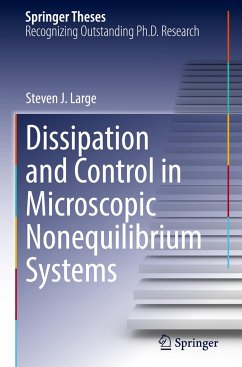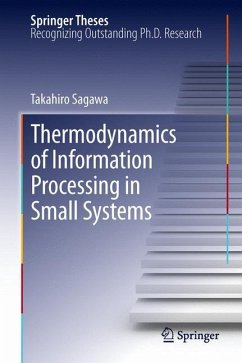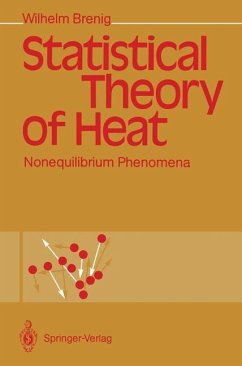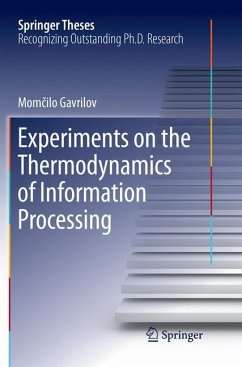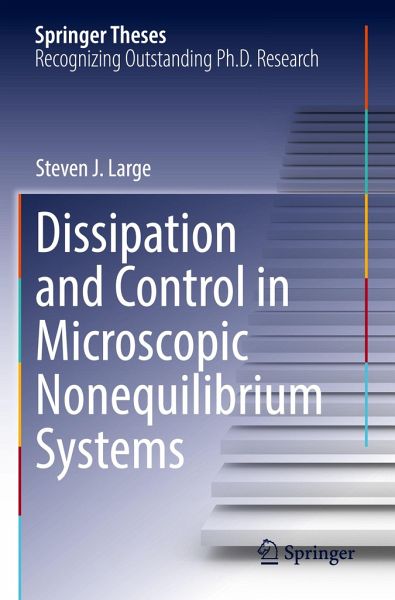
Dissipation and Control in Microscopic Nonequilibrium Systems
Versandkostenfrei!
Versandfertig in 6-10 Tagen
136,99 €
inkl. MwSt.
Weitere Ausgaben:

PAYBACK Punkte
68 °P sammeln!
This thesis establishes a multifaceted extension of the deterministic control framework that has been a workhorse of nonequilibrium statistical mechanics, to stochastic, discrete, and autonomous control mechanisms. This facilitates the application of ideas from stochastic thermodynamics to the understanding of molecular machines in nanotechnology and in living things. It also gives a scale on which to evaluate the nonequilibrium energetic efficiency of molecular machines, guidelines for designing effective synthetic machines, and a perspective on the engineering principles that govern efficien...
This thesis establishes a multifaceted extension of the deterministic control framework that has been a workhorse of nonequilibrium statistical mechanics, to stochastic, discrete, and autonomous control mechanisms. This facilitates the application of ideas from stochastic thermodynamics to the understanding of molecular machines in nanotechnology and in living things. It also gives a scale on which to evaluate the nonequilibrium energetic efficiency of molecular machines, guidelines for designing effective synthetic machines, and a perspective on the engineering principles that govern efficient microscopic energy transduction far from equilibrium. The thesis also documents the author's design, analysis, and interpretation of the first experimental demonstration of the utility of this generally applicable method for designing energetically-efficient control in biomolecules. Protocols designed using this framework systematically reduced dissipation, when compared to naive protocols, in DNA hairpins across a wide range of experimental unfolding speeds and between sequences with wildly different physical characteristics.



